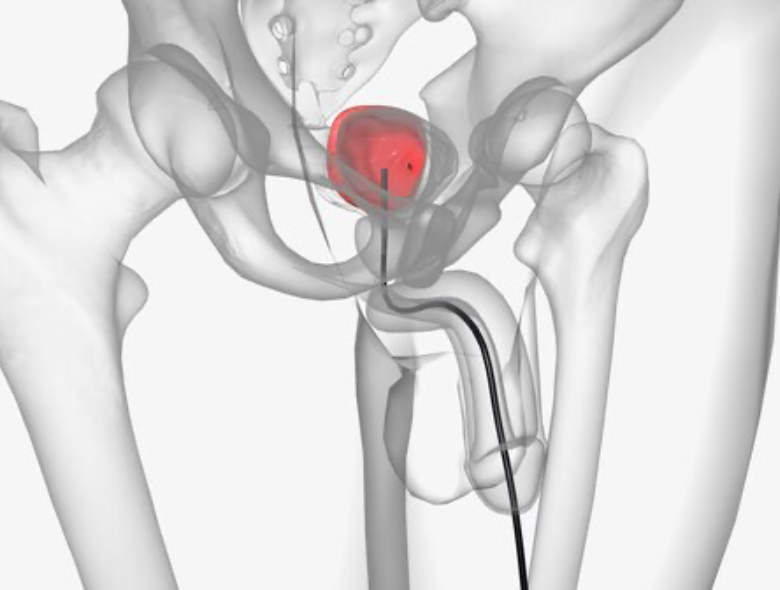Office Address
First Floor, 410, opposite Radisson blue hotel, opposite RADISSON BLU HOTEL, Bhera Enclave, Paschim Vihar, Delhi, 110087
Phone Number
+91 7834995999
First Floor, 410, opposite Radisson blue hotel, opposite RADISSON BLU HOTEL, Bhera Enclave, Paschim Vihar, Delhi, 110087
+91 7834995999

Introduction
In the ever-evolving landscape of medical advancements, endourology stands as a testament to innovative and minimally invasive approaches to treating various urological conditions. This article delves into the world of endourology, exploring its significance, procedures, and the myriad of benefits it offers to patients.
Understanding Endourology
Endourology, derived from the Greek words "endon" (within) and "ouron" (urine), is a specialized field of urology that primarily involves the use of small, flexible instruments to diagnose and treat urinary tract disorders. Unlike traditional open surgeries, endourological procedures are minimally invasive, resulting in quicker recovery times and reduced post-operative pain.
Evolution of Endourology
The history of endourology can be traced back to the mid-20th century when the development of fiber-optic technology paved the way for exploring the inner workings of the urinary system. Over the decades, it has evolved significantly, incorporating cutting-edge advancements in medical technology such as lasers, robotics, and advanced imaging techniques.
Advantages of Endourology
Endourology offers several advantages over traditional surgical methods, making it an increasingly popular choice for patients and urologists alike.
1. Minimally Invasive
Endourological procedures involve small incisions or no incisions at all, reducing the risk of infection and minimizing scarring. This is a stark contrast to open surgeries, which require large incisions and longer recovery times.
2. Reduced Pain and Discomfort
Patients undergoing endourological procedures often experience less post-operative pain and discomfort, leading to a faster return to their daily routines.
3. Shorter Hospital Stays
Endourological surgeries typically have shorter hospital stays, allowing patients to go home sooner and resume their regular activities.
4. Lower Complication Rates
The minimally invasive nature of endourology results in fewer complications, including a lower risk of bleeding and infection.
5. Precision and Accuracy
Advanced technologies like robotic-assisted surgery provide urologists with unparalleled precision, ensuring optimal outcomes for patients.
Common Endourological Procedures
Endourology encompasses a wide range of procedures, each designed to address specific urological conditions.
1. Transurethral Resection of the Prostate (TURP)
TURP is a common procedure to treat benign prostatic hyperplasia (BPH). It involves the removal of excess prostate tissue using a specialized instrument inserted through the urethra.
2. Laser Lithotripsy
This procedure uses laser energy to break down kidney stones into smaller fragments, making them easier to pass or remove.
3. Ureteroscopy
Ureteroscopy allows urologists to visualize and treat issues within the ureter and kidney using a thin, flexible scope.
4. Percutaneous Nephrolithotomy (PCNL)
PCNL is employed for larger kidney stones. It involves making a small incision in the back to access and remove the stone.
The Future of Endourology
As technology continues to advance, the field of endourology will likely see even more groundbreaking developments. With the integration of artificial intelligence, telemedicine, and personalized treatment plans, patients can look forward to more tailored and efficient care.
Conclusion
Endourology has emerged as a transformative branch of urology, revolutionizing the way urological conditions are diagnosed and treated. Its minimally invasive procedures, reduced recovery times, and precise techniques make it a beacon of hope for patients seeking effective solutions to urological issues.
FAQs
1. Is endourology suitable for all urological conditions?
Endourology is effective for many urological conditions, but its suitability depends on the specific case. Consult with a urologist to determine the best treatment option for your condition.
2. Are endourological procedures covered by insurance?
In most cases, endourological procedures are covered by insurance, but it's essential to check with your insurance provider for specific coverage details.
3. How long does it take to recover from a typical endourological procedure?
Recovery times can vary depending on the procedure and the patient's overall health. However, many patients can return to their normal activities within a few days to a few weeks.
4. Are there any risks associated with endourology?
Like any medical procedure, endourological procedures carry some risks. These risks are generally lower than those associated with open surgery and can be discussed with your urologist.
5. Can endourology be used for pediatric urological conditions?
Yes, endourology can be adapted for pediatric patients, offering minimally invasive solutions for various urological issues in children. Consult a pediatric urologist for more information